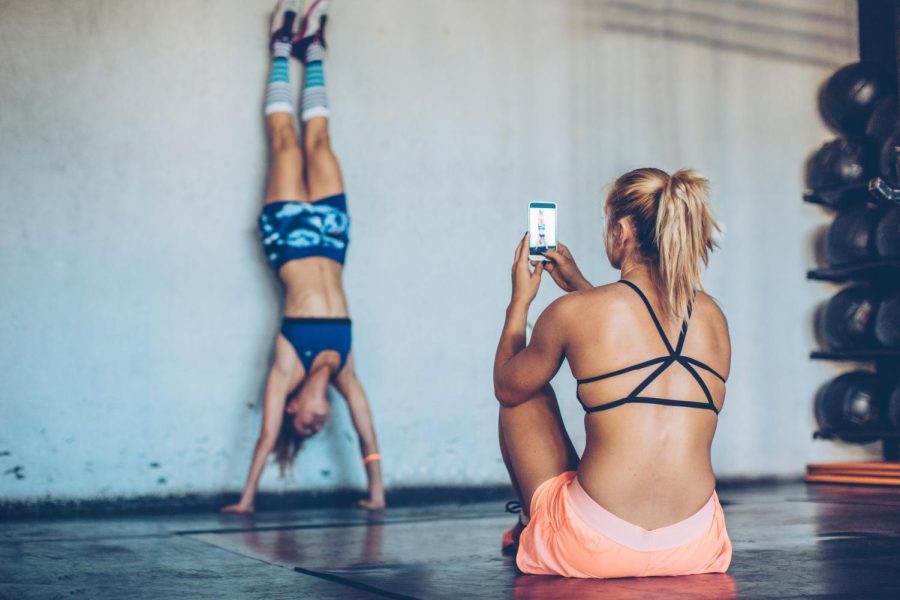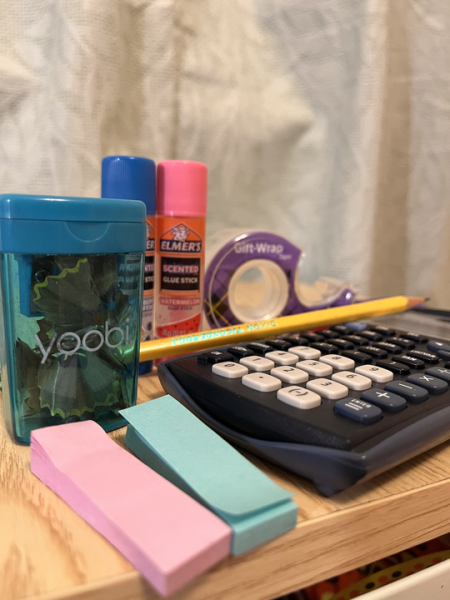Social media enables gym culture’s toxicity
A woman does a handstand while her friend takes a picture for social media.
March 31, 2022
Social media is infested with fitness influencers.
Scrolling through the fitness tag on Instagram, several of the top posts are touting an influencer’s “healthy” diet, which shows images of plates with minimal food. Most of the other posts are influencers pushing their workout plans, telling followers “this is what I do to look this good,” with the added implication that the user can look just like them if they try hard enough.
For those looking to get fit, social media might not be the right place to start. In fact, in the realm of fitness, social media often does more harm than good.
According to a study published on ResearchGate, there is a solid correlation between Instagram fitness accounts and body image issues.
As more and more fitness accounts flood Instagram, TikTok and YouTube, the perception of a normal body might become warped.
The accessibility of fitness content is having a serious impact on body image and mental health, according to a New York Times article.
“When I was younger, I remember seeing the men’s fashion magazines and seeing the jacked, buff guys on there and wanted to look like them,” the father of teenage influencer @bobby.fit said in the article. “It took me a while to realize that those men’s bodies were most likely unattainable.”
The thing is, everybody is different. Everyone’s body is going to react differently to foods or exercises, even if they’re supposedly “healthy.”
It can be easy to fall into the trap of wanting to look like an influencer, no matter how unattainable their body might be.
In the personal account of Samantha Lego published in Insider, what started as an innocent desire to get in shape and feel good about her body ended up with her developing an eating disorder.
Her story matches many others, too. It’s not uncommon for body image and self-esteem issues to pop up after spending time on Instagram and similar social media websites.
Despite the negative effects of fitness content, it can be used as a social support and engagement tool. Interacting with this kind of content can be educational for those trying to lead more healthy lifestyles.
Social media can give those looking to get fit a way to do so in a comfortable, familiar way, according to a study published in the BioMed Central Public Health journal.
For those who live far away from gyms or public health centers, social media brings the workout to the user. Information on healthy eating is also available through online platforms and can be influenced by supportive social groups.
However, the effectiveness of social media hinges on users and the content they watch. According to the study, social media is an effective support tool when encouragement is given along with information and proper material aids.
That’s where fitness influencers lose credibility.
Looking at the Instagram tag for “fitness,” there are millions of posts of extremely fit people, paired with captions like “keep your eye on the prize,” and telling their followers not to give up before they see the results they want.
Posting selfies of their ultra-fit bodies, then telling followers not to give up until they, too, are ultra-fit, creates a disconnect between what is being said and what users should do. Instead of being encouraging, it’s a comparison between the user and the influencer.
Fitness influencers are not health professionals. If you’re looking to get fit, it’s best to seek advice from a health professional, not an influencer trying to sell a workout program.













